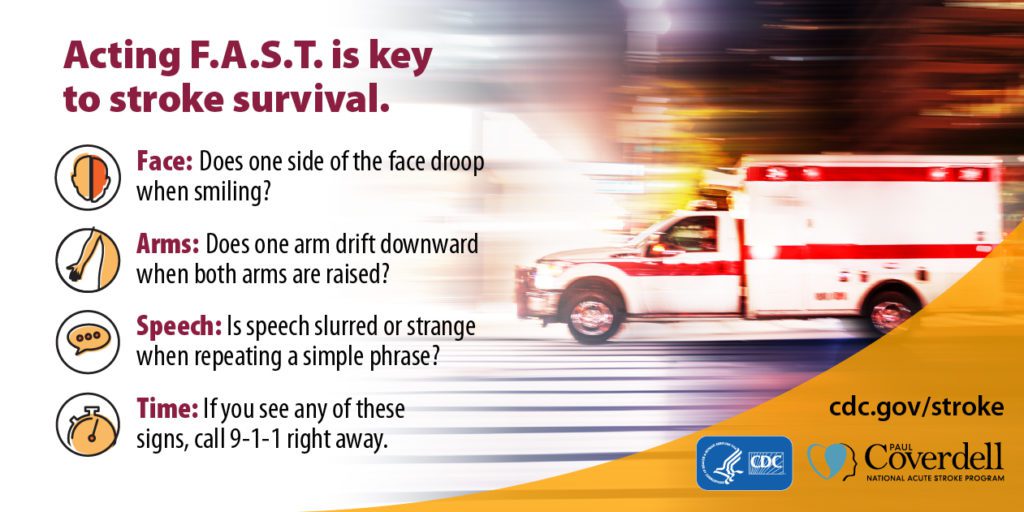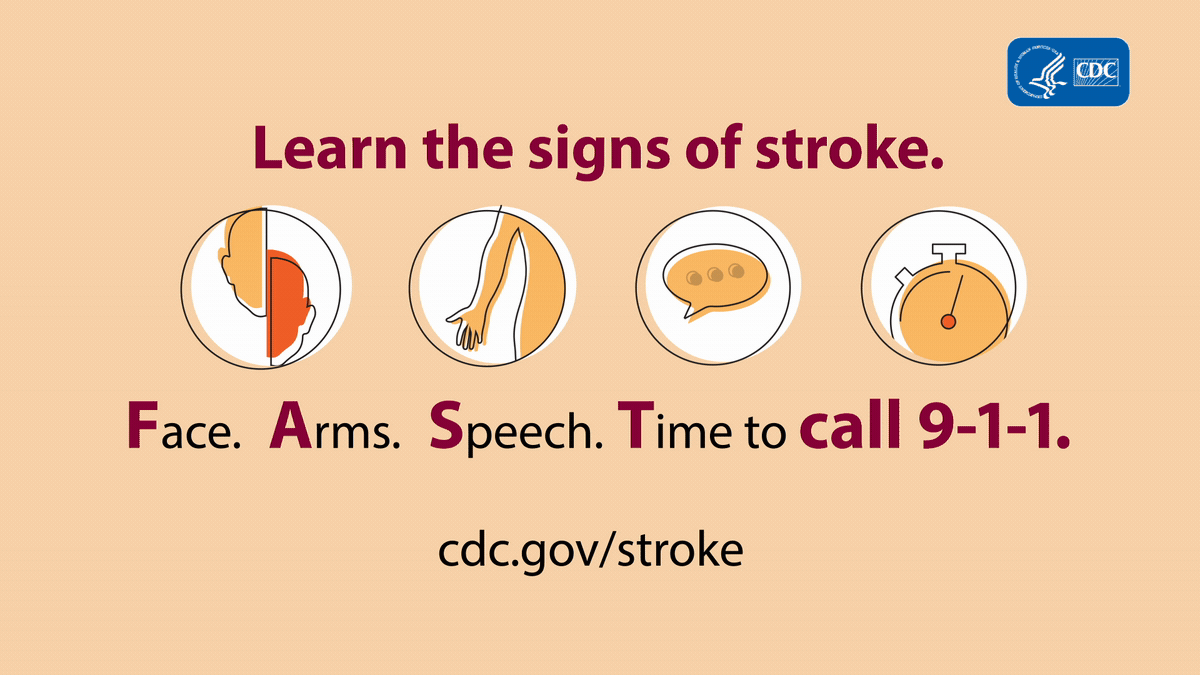Stroke is the 5th leading cause of death and #1 cause of disability in the U.S. Stroke occurs when a blood vessel to the brain or within the brain is either blocked by a clot or ruptures. When it happens, part of the brain doesn’t get the blood and oxygen it needs causing cells to die. A stroke can happen to anyone, at any age, at any time, so it’s important to know how to lower your risk of stroke, and what to do if you suspect you or someone with you is experiencing stroke symptoms.
Can I Reduce my Risk for Stroke?
Many strokes can be prevented by controlling medical conditions and making healthy lifestyle choices. Some things you can do to help reduce your risk of having a stroke include:
Managing your blood pressure – Hypertension is one of the main risk factors for a stroke. Monitoring your heart health, taking blood pressure medications as prescribed by your family doctor, and making healthy lifestyle changes can help you to keep your blood pressure under control.
Lowering your cholesterol – Extra cholesterol can build up in your arteries, including those in the brain. This can lead to a narrowing of the arteries and possibly a stroke or other problems. You can manage your cholesterol by making healthy lifestyle changes along with taking medications as directed by your primary care physician.
Stop smoking – Tobacco use increases the risk for a stroke. Not only does nicotine raise your blood pressure, but smoking cigarettes can damage blood vessels, increasing your risk for stroke.
Start moving more – Getting regular physical activity can help you reach and maintain a healthy body weight and keeps your heart and blood vessels healthier lowering your chances for stroke.
Eat a healthy diet – Choosing healthy foods that are rich in fiber and whole grains to lower your cholesterol along with reducing your intake of sodium to lower your blood pressure can help to reduce your risk of obesity, heart disease, diabetes, and stroke. For help making healthy diet choices, talk to your family doctor or a nutritionist.
What to do if you See Signs of a Stroke

A stroke is a medical emergency. If you’re having a stroke, it’s critical that you get medical attention right away. Act F.A.S.T. Immediate treatment may prevent death and possibly minimize the long-term effects of a stroke.
Other Stroke Symptoms:
- Numbness or weakness of arm, leg, or face, especially on one side of the body.
- Impaired vision – trouble seeing in one or both eyes.
- Disorientation, confusion, or memory problems.
- Trouble speaking or understanding speech.
- Impaired movement – trouble walking, dizziness, loss of balance or coordination
- Severe headache with no known cause.
If you or someone with you is showing these or other stroke symptoms, urgent medical evaluation and treatment are needed. Check the time so you’ll know when the symptoms began. Call 911 even if the symptoms go away.
Thanks to recent medical advancements, stroke treatments, and survival rates have greatly improved over the last decade. Calling 911 lets first responders begin treatment on someone experiencing stroke symptoms before arriving at the hospital. Early treatment of stroke leads to higher survival rates and lower disability rates.
If you’re concerned about your chances of having a stroke the good news is that healthy behaviors can lower your risk. Talk to your family doctor, and learn about your risk for stroke. Work with your health care team to manage any medical conditions that may increase your chances of having a stroke like high blood pressure or high cholesterol. As part of your medical team, we are here to provide you with the best care in all aspects of your health care needs. For more information on our medical practice, or to make an appointment contact River Bend Medical Associates, or call 916-392-4000.


